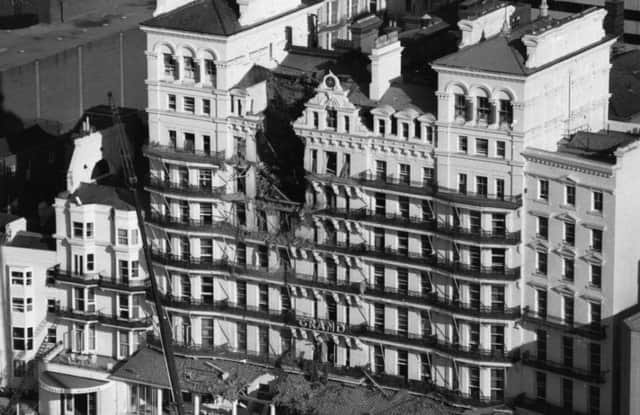Brighton bomb jeopardised months of peace talks


The 1984 Brighton bombing, orchestrated by the IRA, targeted the then government at the Grand Hotel during the October Conservative Party conference in Brighton, killing five people and injuring 31 others.
The attack, which was carried out by Patrick Magee, a 35-year-old IRA man, from Belfast, who served 14 years in prison for the crime.
Advertisement
Hide AdAdvertisement
Hide AdIn a previously unknown consequence, the bomb jeopardised Mrs Thatcher’s own work four months earlier, when she sought and secured Cabinet approval for a series of secret liaisons with the Republic of Ireland. The meetings were known within Downing Street as the “Armstrong/Nally talks”, named after Sir Robert Armstrong, then British Cabinet secretary, and Dermot Nally, the then secretary to the Irish government.
Updating the government on their progress in June, before the Brighton bombing, Mrs Thatcher said: “If complete secrecy was not preserved, progress would be impossible.
“It was necessary at this juncture to look further ahead into Ireland than the British government had done before. Ten thousand British soldiers could not be left in Northern Ireland forever, nor could the very considerable cost of subsidising the Province be sustained, without continuing search for possible forward movement.”
The covert interactions were launched to find solutions to the Northern Ireland crisis that were agreeable to both countries, and have since been hailed as a crucial steering committee for the Anglo-Irish Agreement announced in November 1985.
But documents revealed today show Mrs Thatcher was reluctant to sanction their continuation after the Brighton bomb.